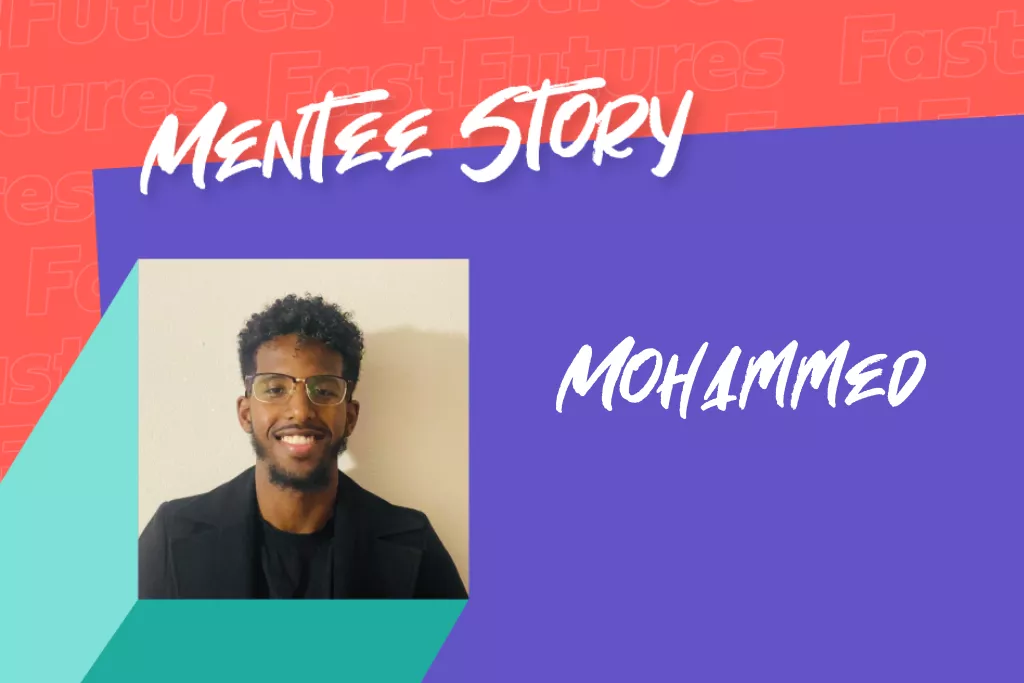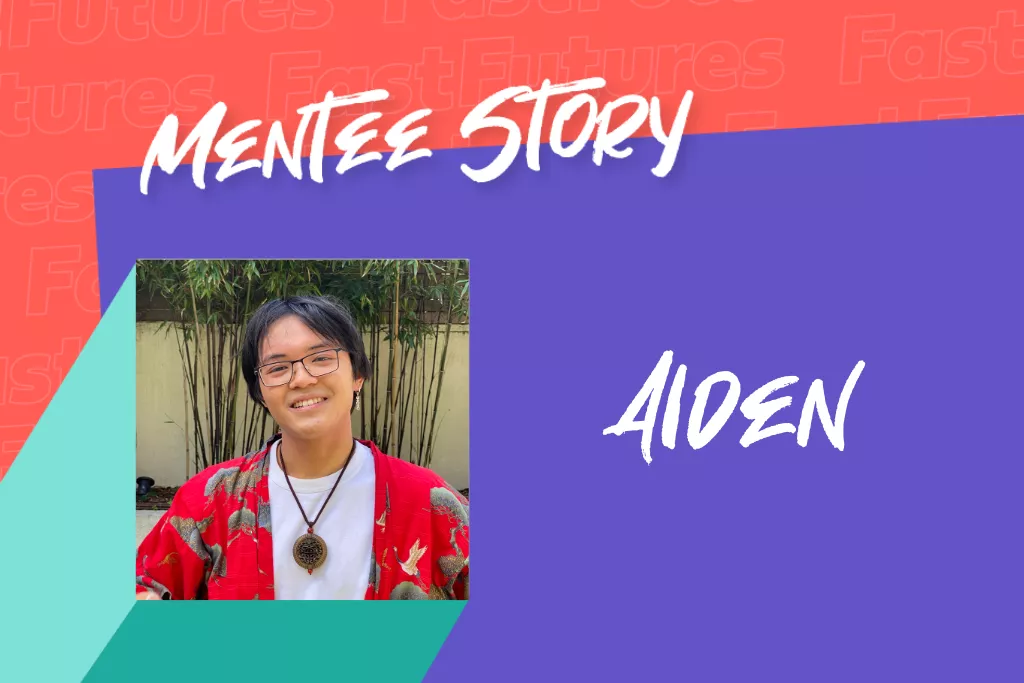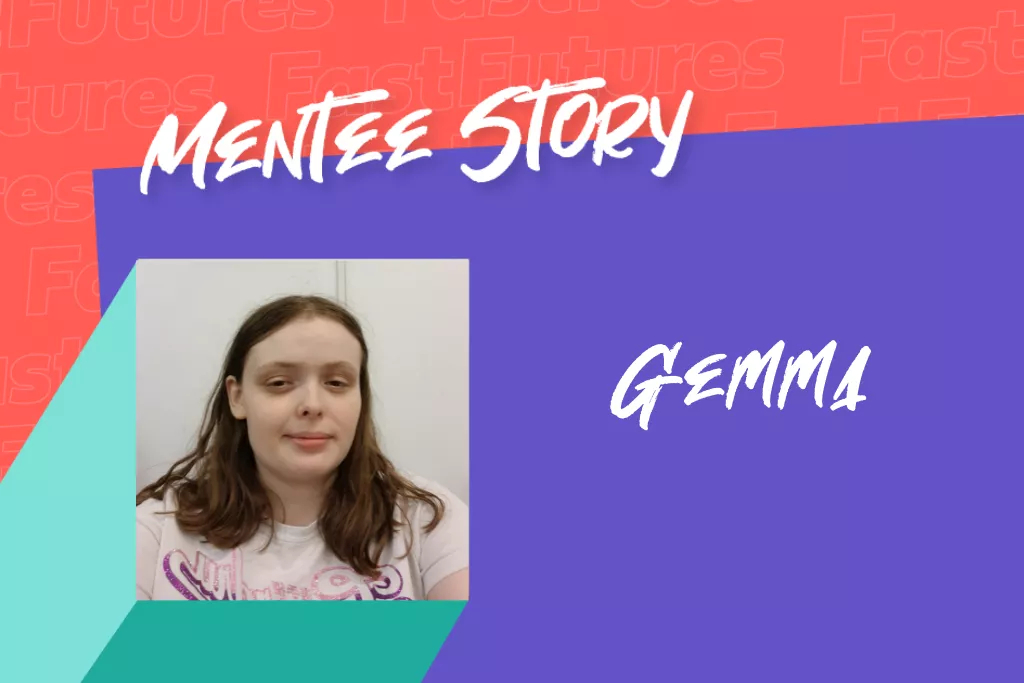HR training, delivered seamlessly online for busy professionals
Mohammed graduated in MSC Environmental Assessment and Management at the University of Salford. His strong relationship with his mentor Phillipa (Pip, as he calls her) from CGI, was pivotal in his imminent career as a Sustainability Advisor at CGI. It’s a role that was specially created for him, with help from Phillipa.
Though highly qualified, Mohammed felt like his greatest disadvantage when looking for work was a lack of experience. That was his key motivator for joining FastFutures. “Before I joined FastFutures, I’d been applying for jobs and had plenty of rejections. A lot of my feedback was that I lacked experience.”
He opened up to his mentor as she works in a similar field. She was able to offer lots of advice, which he was always ready to receive.
“She’s the Director of Corporate Social Responsibility, which has a lot of overlap for sustainability. So we were able to have a lot of conversations around that topic. One of the things she pointed out was how enthusiastic I was about looking for the newest thing or asking lot of curious questions.”
Pip helped present Mohammed’s expertise, communicating his skills in the best possible way and translating them through to his applications, both on his CV and on cover letters.
Through his mentor, Mohammed was able to access a number of senior profiles within CGI to discuss opportunities and gain advice. He also landed a job interview at a different company and was fully prepped by Pip and her CGI co-workers in the lead-up.
“She was quick to put me in contact with her extensive network, including someone at a different company. That was for a role that was a bit different to sustainability, in procurement.” Mohammed didn’t know much about the position, so Pip put him in contact with the head of procurement at CGI.
Mohammed aced the interview, but in the meantime, Pip was trying to establish a new role for him at CGI. That worked out, he is set to start at his new role at the end of October.
It wasn’t just professional help Pip gave Mohammed. He was able to help her, too. Feeling like a late comer to the field of sustainability, Mohammed was able help his mentor with personal feelings of impostor syndrome.
“[Pip] is high up in what she does and obviously well respected. But, she was saying that she still sometimes has these worries and [impostor syndrome]. That is really powerful because sometimes you put people on these pedestals and think that once you get to that stage, you won’t have any more fears or any more insecurities about anything. But, if someone of that caliber who is that well respected can go through some of the same worries as you, it reaffirms that you’re not alone in that.”
And Mohammed certainly isn’t alone. It is a testament to his perseverance that he has well-established relationships with many senior staff at CGI, before even starting his role. Gaining that professional support network is at the core of our mentoring programme. Mohammed would recommend that more employers consider implementing a mentoring scheme.
“There are a lot of young people who are going through a very dynamic time at the moment. The job market is quite difficult, so having that relationship with someone who’s been there and done it, who can really guide you through the process and act as a as a role model, then it gives you hope and inspiration.”
Likewise, Mohammed thinks mentoring is beneficial to mentors as a means of communicating and connecting with the newest young talent. That young talent is who employers are often so interested to engage with, but they struggle to implement structural change within their recruitment and onboarding processes to represent the voices and opinions of this newest generation of employees.
“I think it’s a good experience for [mentors], because there can be a disconnect between different generations. Bridging that gap through things like mentorship schemes is vitally important.”
His advice to mentors is to take the leap. “Mentors might feel a bit worried and nervous about doing something like this. But once you get into that mentor-mentee relationship, you realise that it’s really just a human interaction. So, for any mentors who are a bit apprehensive about the responsibility, you’ll be surprised how easy a relationship like that is and how much you know.”
Mohammed recommends taking a real interest, and asking lots of questions. “Of course, it’s about learning, but also taking interest in them as a person and getting to know their experience. You’ll be able to see that it’s not always a linear journey. We can go back, forwards, sideways and I think that can be quite powerful. And sometimes you may not know exactly what you want to do, so you may not be able to really demonstrate a passion for your field. If that’s the case, double up on the questions.”
 5 min read
5 min read 


